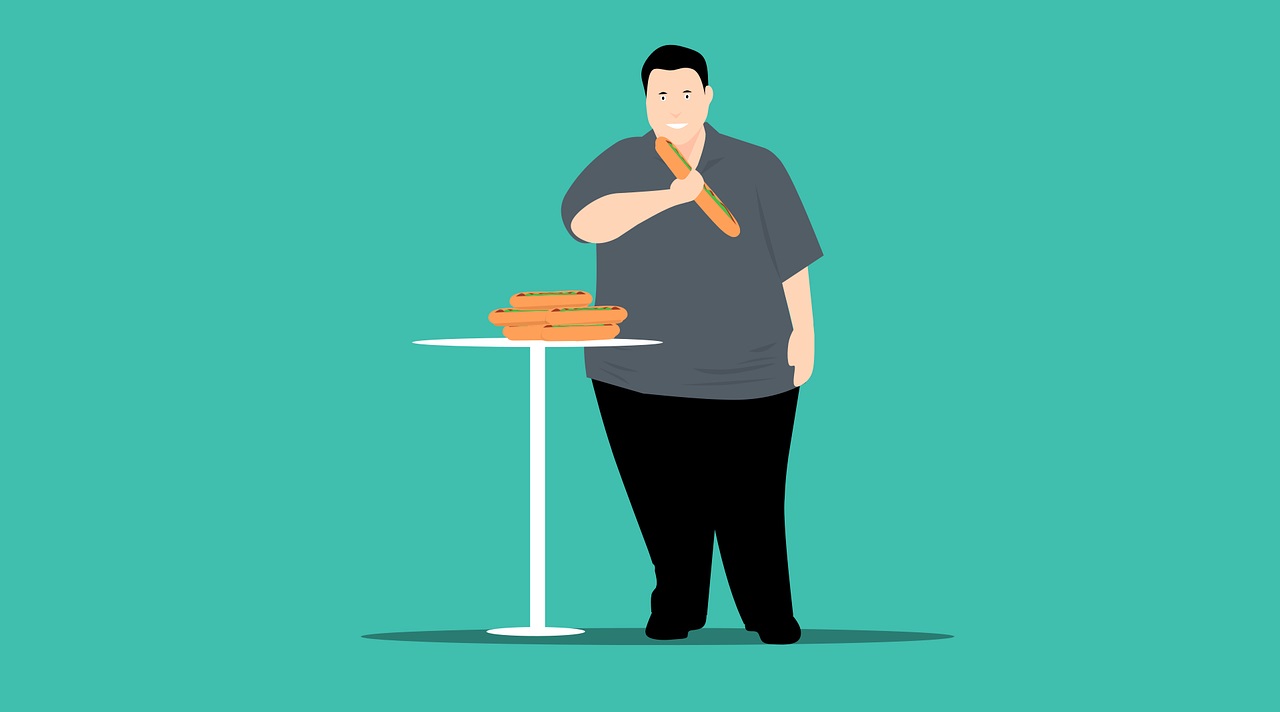
Overeating refers to eating more than what you normally require in a single sitting. It leads to you consuming more calories than your body needs. While it is a common habit among many people, it is also quite unhealthy and risky at times.
Over time, overeating can lead to serious chronic health conditions such as heart disease, diabetes, or obesity. Additionally, overeating also has short-term side effects such as bloating and digestive issues.
Overeating is different for everyone. That’s because having ‘too much’ to eat has a different meaning for every person. For instance, the amount of food you have for dinner may be too little for someone else, while another person’s dinner can seem like too much for you.
Due to the wide availability of processed foods and added sugars, many people tend to overeat. But in some others, it may indicate a potential eating disorder. In any case, it’s not a good idea to eat more than the recommended daily amount. But, breaking the cycle comes with many challenges.
While it is not easy to instantly break overeating habits, some techniques can help significantly.
How Can You Curb Overeating?
It is not hard to develop overeating habits, especially when you enjoy delicious meals. While it is even truer for foodies, other factors like stress can also contribute to overeating. So here are a few tactics to get you started.
Have Water Before You Eat
We all know drinking enough water each day is important to keep our bodies hydrated. This is because the body of an average adult is at least 60% water. While this is understandable, how can having water right before your meals help with overeating?

A simple glass of water does so much for us–before a meal it can help curb overeating.
Well, it can directly lead to consuming less food. This is because your stomach will feel full when you drink a glass of water before a meal. This feeling of fullness will effectively prevent you from eating too much. You will only need little food to feel full and satisfied when you fill yourself with water.
Additionally, drinking water also decreases your chances of consuming calories from sugary and other beverages such as sodas and alcohol. So if you are struggling to stop yourself from eating too much at every meal, start drinking a glass of water before you sit down to eat.
Eat Slowly
Oftentimes, overeating is a result of eating too quickly and ending up with a bloated tummy. This is because it takes time for your mind to know that your stomach is full.

Habits like putting your fork down between bites help you to eat more slowly.
The stomach has stretch receptors that activate when you fill your stomach with food and water. These send signals to the brain through the vagus nerve that is directly connected to the brainstem. As partially digested food enters your small intestine, the body releases hormonal signals.
It’s All About the Timing
This entire process that informs your brain about the food in your stomach is a little time-consuming and can take anywhere between 5 to 20 minutes.
You can set a timer for 20 minutes and notice how long it takes for your mind to tell you that your stomach is full. Eat slowly and pay close attention to find an approximate time that it takes for your gut and mind to complete the process.
Alternatively, have a light snack (like 12 almonds) 30 minutes before eating. With fiber, healthy fat and protein, seeds and nuts help to trigger your brain signals to start telling you you are full before a meal even begins.
Figure Out Your Trigger Foods
A lot of people have favorites that can trigger them to overeat. For instance, a container of ice cream may have the potential to trigger an episode of binge-eating for you. If so, try to stop stocking your freezers. This will make it harder for you to access it often, making it easy for you to stop overeating.

Know your trigger foods that have you binge eating.
It is also a good idea to keep unhealthy snacks like chocolates and chips out of sight, so you don’t eat them too frequently. Instead, you can turn to healthy snacking by preparing healthy options such as sliced apples or veggies. Keep them ready-to-eat in the fridge so that they compete with ready-to-eat junk food.
However, remember to not ban all your favorite food items at all times. While restrictive eating habits are good, they can also bring feelings of deprivation. As a result, you are likely to relapse with greater intensity. So, always keep some room for occasional snacking and savor your favorite snacks from time to time.
What’s The Source of Your Overeating?
There are many ways we “numb out” emotional pain and anxiety. Is this the source of your overeating? Boredom? Pay attention to the story you’re telling yourself.
Bottom Line
Various causes can lead to overeating, including stress and eating disorders. Regardless of the reasons, overeating can negatively affect your health. A few techniques such as drinking a glass of water before your meals, eating slowly, methods to reduce stress and avoiding your trigger foods can help you curb overeating habits.
p.s. – If you want to stop the cycle of overeating, schedule a free no-obligation appointment directly in my calendar here. I look forward to our conversation!

Paul Strobl, MBA, CPC
Owner of Confide Coaching, LLC
Paul is a Master Life Coach for GenX and GenY executives and business owners. Originally from Houston, Texas, he has been location independent for most of his adult life. He currently resides in the Rhodope Mountains of Bulgaria near the Greek border with his brilliant wife, 14-year-old stepson (officially adopted in 2021!) and a Posavac Hound rescue.
Sources
https://www.healthline.com/nutrition/how-to-stop-overeating/
https://www.insider.com/how-to-stop-over-eating-or-eating-too-much-when-youre-not-hungry-2018-6/

